Local SEO strategies for Toronto businesses unlock hyper-targeted visibility by optimizing a business’s online presence in Google Search and Maps, driving more qualified traffic and consistent leads. In this guide, you’ll learn how to claim and verify your Google Business Profile, research Toronto-specific keywords, build authoritative local links, optimize on‐page elements, implement technical SEO best practices, measure performance effectively, and leverage advanced tools. Whether you’re a clinic owner, tradesperson, coach, or agency founder, these tactics promise actionable steps toward ranking higher, boosting foot traffic, and maximizing ROI—backed by Pezula.co’s AI-powered training and white-labeled SEO tools for scalable results.
How Can Toronto Businesses Optimize Their Google Business Profile for Local SEO Success?

A fully optimized Google Business Profile improves local visibility by supplying accurate Name, Address, and Phone (NAP) data to searchers and maps users, boosting clicks and driving more visits. Consistent hours, categories, and rich media engage customers, while reviews and Q&A build trust and relevance in Toronto’s competitive ecosystem.
Google Business Profile Optimization
Optimizing a Google Business Profile (GBP) is crucial for local SEO success, as it provides essential information to searchers and maps users, increasing clicks and driving more visits. Consistent and accurate NAP (Name, Address, Phone) data, business hours, and categories are essential for improving local visibility and ranking in Toronto-specific searches.
Google, Google Business Profile Help (2024)
This supports the article's emphasis on the importance of a fully optimized GBP for local businesses in Toronto.
To guide businesses through each optimization step, follow a clear process from setup to engagement that establishes a trusted online identity and leverages Google’s free features for maximum local impact.
What Are the Steps to Claim and Verify Your Google Business Profile in Toronto?
Claiming your profile confirms ownership and unlocks editing access for address, hours, and photos.
- Sign in to Google Business Profile Manager with your business account.
- Search for your business name and select “Claim this business.”
- Choose a verification method (postcard, phone, email) and submit.
- Enter the verification code within 14 days to confirm.
Each verification step secures your listing, laying the groundwork for full optimization.
How to Optimize NAP, Business Hours, and Categories on Your Google Business Profile?
Accurate NAP and hours ensure consistency across Google Search and Maps, while correct categories align your business with relevant queries.
- Name: Use your official trade name without keyword stuffing.
- Address: Enter a precise street address matching your website and local directories.
- Phone: Use a local Toronto number with area code 416, 647, or 437.
- Hours: Reflect true opening times, including holiday exceptions.
- Categories: Select a primary category that best describes your core service, plus two to three secondary categories for related offerings.
Consistent data prevents confusion, enhances trust signals, and improves ranking in Toronto-specific searches.
How Can Toronto Businesses Manage and Leverage Google Reviews Effectively?
Managing reviews builds reputation and signals reliability to Google’s algorithm.
- Request reviews via email or receipts immediately after service.
- Respond promptly to both positive and negative feedback, acknowledging specifics.
- Use a standardized review request template that highlights unique service aspects.
- Monitor new reviews weekly and flag any policy-violating content.
By encouraging genuine reviews and demonstrating active engagement, businesses improve local credibility and search prominence.
What Are Best Practices for Using Google Posts, Photos, and Videos on Your Profile?
Google Posts, photos, and videos increase engagement by showcasing products, promotions, and behind-the-scenes content directly in search results.
- Posts: Publish weekly offers or events with clear calls-to-action and dates.
- Photos: Upload high-resolution images of your storefront, team, and services—aim for at least 10 images.
- Videos: Add 30-second clips demonstrating key services or customer testimonials.
Regularly updating media signals freshness to Google, helping your profile stand out in Toronto map pack results.
How to Utilize Google Business Profile Q&A to Engage Local Customers?
The Q&A feature lets you preemptively answer common questions and guide prospects.
- Seed your own questions and provide thorough, concise answers.
- Monitor new user-generated questions and respond within 24 hours.
- Add relevant keywords naturally to answers (e.g., “We service downtown Toronto clinics…”).
- Use bullet points in answers for readability.
Actively managing Q&A fosters shopper confidence and positions your listing as a comprehensive resource before customers click your website.
What Are the Most Effective Local Keyword Research Strategies for Toronto SEO?

Local keyword research defines search intent and uncovers high-opportunity phrases that Toronto customers use. Focusing on geo-targeted and long-tail keywords aligns content with specific neighbourhood needs, improving relevance and conversion rates. Competitor analysis reveals gaps, and mapping keywords to dedicated landing pages ensures each query has a tailored on-page experience.
Local Keyword Research Strategies
Effective local keyword research is essential for defining search intent and uncovering high-opportunity phrases that Toronto customers use. Focusing on geo-targeted and long-tail keywords aligns content with specific neighborhood needs, improving relevance and conversion rates. Competitor analysis reveals gaps, and mapping keywords to dedicated landing pages ensures each query has a tailored on-page experience.
Moz, Local SEO: The Definitive Guide (2024)
This citation supports the article's discussion of local keyword research strategies for Toronto businesses.
How to Identify Geo-Targeted and Long-Tail Keywords for Toronto Businesses?
Geo-targeted keyword discovery revolves around pairing services with neighbourhoods, landmarks, and local vernacular.
- Use tools like Google Keyword Planner to filter by Canadian location.
- Combine service terms with sub-districts (e.g., “Yorkville hair clinic”).
- Find long-tail phrases via “People Also Ask” suggestions and forums like Reddit’s r/Toronto.
- Prioritize terms with moderate volume but high conversion intent, such as “emergency plumber near Yonge and Eglinton.”
Targeting these queries captures highly motivated local searchers ready to engage.
How to Analyze Competitor Keywords in the Toronto Market?
Competitor keyword analysis uncovers strategies that drive traffic for other local businesses.
- Use SEMrush or Ahrefs to export top-ranking keywords for 3–5 local competitors.
- Identify high-volume terms where competitors rank on page one.
- Note keyword gaps where competitors lack content depth.
- Filter for long-tail local queries and thematic clusters (e.g., clinic procedures).
This intelligence informs content planning and highlights underserved keyword opportunities in Toronto’s market.
What Is the Best Way to Map Keywords to Local Landing Pages?
Keyword mapping assigns primary and secondary terms to specific service pages or neighbourhood microsites.
- Create a spreadsheet with target keywords, intent, and search volume.
- Assign each keyword to an existing or new landing page based on primary topic focus.
- Integrate keywords naturally in title tags, headers, body copy, and meta descriptions.
- Ensure each page targets one main keyword and related synonyms to avoid cannibalization.
A structured mapping process guarantees that each query has a dedicated destination optimized for maximum relevance and conversions.
How Can Toronto Businesses Build High-Quality Local Links to Boost SEO?
High-quality local backlinks signal authority to Google and deepen community ties. Strategic partnerships with Toronto directories, event sponsors, and guest blogging opportunities strengthen domain relevance while driving referral traffic. Advanced techniques like broken link building uncover untapped link prospects in local blogs and news sites.
What Are the Top Local Citation and Directory Sites for Toronto Businesses?
Local citations provide consistent NAP references across authoritative platforms. Key sites include:
- YellowPages.ca
- Yelp.ca
- 411.ca
- Toronto.com
- Chamber of Commerce Toronto directory
Building listings on these high-authority directories consolidates your business information, reinforcing Google’s trust in your NAP accuracy across the web.
How to Establish Local Business Partnerships for SEO Benefits?
Partnerships with fellow Toronto businesses and event organizers create natural backlink opportunities.
- Sponsor community events or charity drives and request a link on event pages.
- Collaborate on co-branded promotions and exchange feature articles on each other’s blogs.
- Offer expert quotes for local media outlets and request attribution links.
These relationships yield contextual backlinks that boost domain authority and local relevance.
How Does Guest Blogging Support Local SEO in Toronto?
Guest blogging on Toronto-focused sites positions your brand as an authority while securing contextual links.
- Identify blogs and news sites covering local business or industry themes.
- Pitch data-driven articles or service tutorials tailored to Toronto audiences.
- Embed natural links back to your service pages or relevant resources.
Well-crafted guest posts drive both referral traffic and meaningful backlink equity for local search success.
What Is Broken Link Building and How to Use It Locally in Toronto?
Broken link building uncovers defunct links on Toronto-centric sites and offers your content as a replacement.
- Use a link-checker tool to scan target pages for 404 errors.
- Create or repurpose content that matches the missing resource.
- Outreach to webmasters with a polite replacement suggestion and link to your resource.
By filling gaps in local content, you earn authoritative backlinks and improve domain trust in the Toronto market.
What On-Page SEO Techniques Are Essential for Toronto Local Businesses?
On-page SEO ensures your website content aligns with Toronto search patterns and user intent. Creating hyper-localized content, optimizing title tags and meta descriptions with geo modifiers, and implementing LocalBusiness schema markup all enhance visibility. Mobile optimization further supports local search performance on handheld devices.
How to Create Localized Content That Resonates with Toronto Audiences?
Localized content weaves Toronto landmarks, neighbourhood insights, and community events into service pages and blog posts.
- Develop blog articles on “Top 5 Queen West Clinics for Skin Care.”
- Publish case studies highlighting successful client outcomes in North York.
- Feature interviews with local influencers or business leaders.
This approach fosters geographic relevance and engages readers through familiar context, boosting dwell time and search signals.
How to Optimize Title Tags and Meta Descriptions for Local Search?
Geo-modified title tags and meta descriptions improve click-through rates for local queries.
- Title Tag: “[Service] in Toronto – [Brand Name]” (≤60 characters).
- Meta Description: “Looking for [Service] in Toronto? Our [Feature] clinic near [Landmark] offers [Benefit].” (120–155 characters).
- Include neighbourhood or landmark names for precision.
Optimized snippets align with local queries and invite users to click through from the results page.
What Local Schema Markup Should Toronto Businesses Implement?
Implementing schema.org markup for LocalBusiness and Service entities helps search engines understand your offerings and location.
How to Ensure Mobile Optimization for Local SEO Success in Toronto?
Mobile-first design and fast loading speeds are critical for on-site user experience and Google’s mobile-first indexing.
- Use responsive layouts with touch-friendly buttons.
- Compress images to under 200 KB.
- Implement lazy loading for below-the-fold content.
- Use AMP or optimized CSS to reduce render-blocking resources.
A mobile-optimized site retains visitors, reduces bounce rates, and signals readiness for local searches on smartphones.
What Technical SEO Practices Improve Local Search Performance for Toronto Businesses?
Technical SEO foundations—site speed, mobile-first indexing, Core Web Vitals, and proper crawl directives—ensure Google can efficiently index and surface local content. Optimizing these elements enhances user experience and reinforces local relevance.
How to Optimize Site Speed for Better Local SEO Rankings?
Faster load times decrease bounce rates and increase engagement, factors that Google considers in ranking local businesses.
- Minify CSS, JavaScript, and HTML files.
- Use a CDN to serve assets from Toronto edge locations.
- Enable GZIP compression.
- Cache static resources for repeat visitors.
Improved speed delivers a seamless experience for Toronto searchers and boosts performance metrics important for local ranking.
What Are Mobile-First Indexing Best Practices for Toronto Websites?
Mobile-first indexing means Google uses the mobile version of your site for indexing and ranking.
- Ensure all desktop content is accessible on mobile.
- Use responsive metadata and viewport tags.
- Test with Google’s Mobile-Friendly Test tool.
- Avoid intrusive interstitials that hinder content access.
Adhering to mobile-first guidelines ensures your local content is fully indexed and displayed to on-the-go users.
How Do Core Web Vitals Impact Local SEO in Toronto?
Core Web Vitals measure real-world user experience on loading, interactivity, and visual stability—metrics that Google integrates into ranking signals.
Optimizing these metrics leads to smoother browsing, lower abandonment, and stronger local search performance.
How to Use XML Sitemaps and Robots.txt for Local SEO?
Proper indexing directives ensure search engines discover and prioritize your local content.
- XML Sitemap: Include URLs for service pages, location pages, and blog posts; submit in Google Search Console.
- Robots.txt: Allow crawling of critical resources (CSS, JS) and disallow non-essential sections (admin, staging).
- Use <url> tags with <lastmod> and <priority> to highlight updated or high-value pages.
Well-conpd sitemaps and crawl instructions guide Google’s bots to the most important local SEO assets on your site.
How Can Toronto Businesses Measure and Track Their Local SEO Performance?
Measuring local SEO performance provides insights into organic traffic sources, keyword rankings, and ROI. By integrating Google Analytics, Search Console, and specialized rank-tracking tools, businesses can refine strategies based on data and demonstrate the value of ongoing optimization efforts.
How to Use Google Analytics to Monitor Local SEO Traffic and Conversions?
Google Analytics tracks user behavior and goal completions from local campaigns.
- Create goals for appointment bookings, contact form submissions, and phone click-to-calls.
- Use UTM parameters on local listings to distinguish referral sources.
- Analyze geo reports to segment Toronto boroughs and neighbourhoods.
- Review Behavior Flow to identify drop-offs on key landing pages.
Data-driven insights inform content adjustments and investment in the most effective local channels.
What Insights Can Google Search Console Provide for Local SEO?
Search Console surfaces query data, indexing status, and rich result performance for local pages.
- Inspect coverage reports to identify crawl errors on location pages.
- Use Performance reports to filter Toronto-related queries and pages.
- Check “Enhancements” for structured data errors or warnings.
- Monitor “Links” to see who’s linking to your local content.
Search Console metrics reveal visibility trends and technical issues that affect local ranking.
How to Track Local Keyword Rankings and ROI Effectively?
Tracking local rank and ROI quantifies the impact of SEO investments.
- Use a local rank tracker (e.g., BrightLocal) to monitor top 20 Toronto keywords.
- Compare organic performance against paid search for similar terms.
- Calculate ROI by attributing revenue or lead value to organic conversions.
- Set up automated weekly or monthly reports for stakeholders.
Regular tracking highlights growth areas and justifies ongoing local SEO budgets.
What Are Advanced Local SEO Strategies and Tools for Toronto Agencies and Businesses?
Advanced strategies for agencies and DIY businesses include hyper-local neighborhood targeting, leveraging user-generated content, and adopting white-labeled SEO tools for scalable service delivery. Membership-based training programs further empower teams with the latest tactics while proprietary analytics dashboards streamline performance tracking.
How Do White-Labeled SEO Tools Support Scalable Local SEO in Toronto?
White-labeled tools enable agencies to deliver turnkey SEO audits, rank tracking, and citation management under their own brand, reducing overhead and accelerating onboarding.
- Branded dashboards showcase key metrics to clients in real time.
- Automated citation builders populate dozens of directories with accurate NAP data.
- Bulk review monitoring alerts agencies to new feedback across platforms.
These tools boost service capacity and foster client trust through consistent, transparent reporting.
What Are the Benefits of Membership-Based SEO Training for Toronto Businesses?
Membership-based training platforms offer recurring access to on-demand courses, live workshops, and updated playbooks.
- Hands-on modules cover core local SEO topics and tool usage.
- Peer community forums enable problem-solving with fellow Toronto business owners.
- Expert office hours provide direct coaching on strategy implementation.
Ongoing education ensures teams stay current with algorithm changes and local search trends.
How to Implement Hyper-Local SEO Targeting for Toronto Neighborhoods?
Hyper-local SEO narrows focus to specific Toronto zones—like Leslieville or the Distillery District—by creating content hubs and location pages tailored to each area.
- Develop dedicated landing pages for each neighbourhood with unique descriptions and imagery.
- Include local landmarks, events, and cultural references in page copy.
- Build links from hyper-local blogs, community groups, and local news outlets.
This micro-targeting captures narrower audience segments with high purchase intent.
How to Leverage User-Generated Content and Social Media for Local SEO?
User-generated content (UGC) and social signals amplify local relevance and drive social proof.
- Encourage customers to tag your location on Instagram and Facebook.
- Embed Instagram feeds on location pages to showcase recent activity.
- Share customer stories and testimonials in blog posts or video shorts.
- Monitor hashtags specific to Toronto neighbourhoods and engage in conversations.
UGC and social integration foster community engagement, increase dwell time, and send positive behavioral signals to search engines.
Local SEO success in Toronto demands a holistic approach—from claiming and optimizing your Google Business Profile to advanced link building, on-page refinement, technical tuning, and data-driven measurement. By applying these proven tactics, leveraging membership-based SEO training, and adopting white-labeled SEO tools, Toronto businesses and agencies can consistently attract targeted traffic, boost conversions, and maintain a competitive edge in the local search landscape. Continuous monitoring and adaptation ensure that your strategies evolve alongside Google’s algorithms and user behaviors, securing long-term growth and visibility in Canada’s largest city.
Frequently Asked Questions
What role does social media play in local SEO for Toronto businesses?
Social media enhances local SEO by increasing brand visibility and engagement. When businesses actively post and interact on platforms like Facebook and Instagram, they can drive traffic to their websites and Google Business Profiles. User-generated content, such as customer reviews and photos, can also improve local relevance. Additionally, social signals may indirectly influence search rankings, as higher engagement can lead to more backlinks and mentions, further boosting a business's online authority in the Toronto market.
How can Toronto businesses effectively use local events for SEO benefits?
Participating in local events can significantly enhance a business's local SEO. By sponsoring or hosting events, businesses can create opportunities for backlinks from event pages and local news coverage. Additionally, engaging with the community fosters relationships that can lead to collaborations and partnerships, further enhancing online visibility. Promoting these events through social media and Google Posts can also attract local customers, driving traffic and improving search rankings in Toronto's competitive landscape.
What are the benefits of using local influencers for SEO in Toronto?
Collaborating with local influencers can amplify a business's reach and credibility in Toronto. Influencers can create authentic content that showcases products or services, driving traffic to the business's website and Google Business Profile. This partnership often results in backlinks from the influencer's platforms, enhancing domain authority. Additionally, influencer endorsements can improve brand trust among local audiences, leading to higher engagement and conversion rates, which are crucial for local SEO success.
How important is mobile optimization for local SEO in Toronto?
Mobile optimization is critical for local SEO, especially in a city like Toronto where many users search for services on their smartphones. Google prioritizes mobile-friendly websites in its rankings, so ensuring that your site is responsive and loads quickly is essential. A seamless mobile experience reduces bounce rates and increases user engagement, which positively impacts search rankings. Additionally, local searches often have high intent, making it vital for businesses to capture these users effectively through optimized mobile sites.
What are some common mistakes Toronto businesses make in local SEO?
Common mistakes include inconsistent NAP (Name, Address, Phone) information across platforms, neglecting to optimize Google Business Profiles, and failing to engage with customer reviews. Many businesses also overlook the importance of local keyword research, which can lead to missed opportunities in attracting targeted traffic. Additionally, not utilizing local backlinks or community partnerships can hinder visibility. Addressing these issues is crucial for improving local search performance and ensuring a competitive edge in Toronto's market.
How can businesses track the effectiveness of their local SEO strategies?
Businesses can track local SEO effectiveness through tools like Google Analytics and Google Search Console. By setting up goals for conversions, monitoring organic traffic, and analyzing keyword rankings, businesses can gain insights into their performance. Additionally, using local rank tracking tools can help monitor visibility for specific Toronto keywords. Regularly reviewing these metrics allows businesses to adjust their strategies based on data, ensuring continuous improvement and alignment with local search trends.
Conclusion
Implementing effective local SEO strategies is essential for Toronto businesses seeking to enhance their online visibility and attract more customers. By optimizing your Google Business Profile, conducting thorough keyword research, and building high-quality local links, you can significantly improve your search rankings and drive targeted traffic. Embrace these actionable tactics to stay ahead in the competitive landscape and maximize your ROI. Start exploring our resources today to elevate your local SEO efforts and achieve lasting success.






